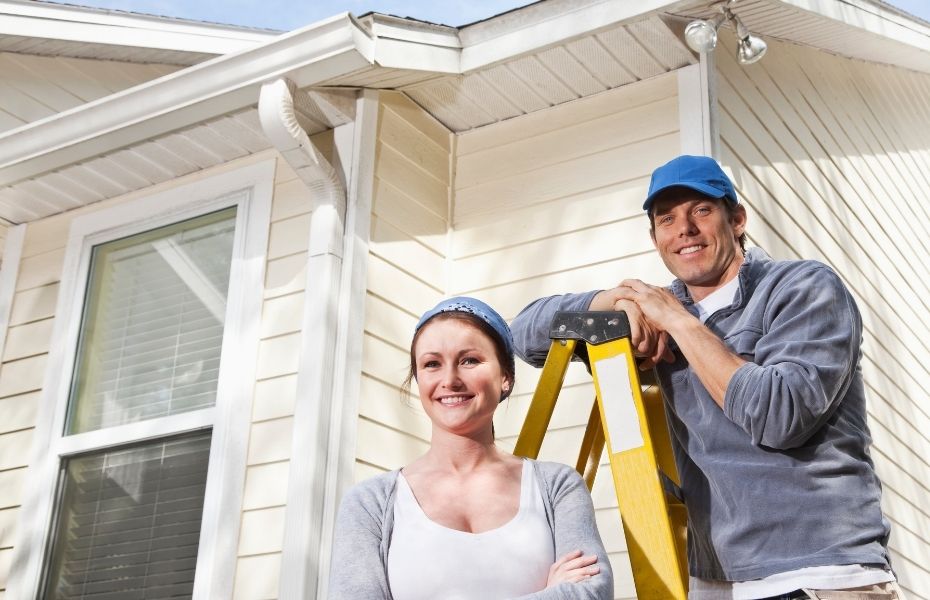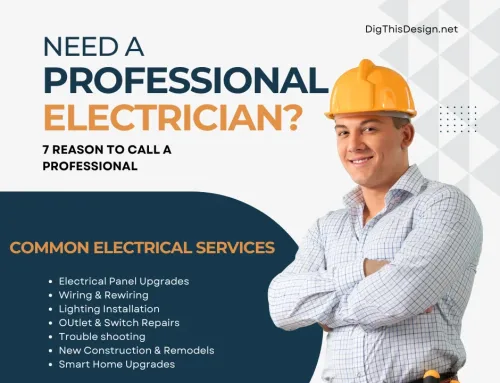Tips for new homeowners: So, you finally have the keys to your new home! Now what? There are so many things that new homeowners must know from the moment they move into their house. However, new homeowners often find it surprising that it also involves home repair and maintenance services. Today, we bring you seven of the New Homeowners Problems or most common issues that new homeowners must know and the common pitfalls to avoid.
The 7 Essential Things That New Homeowners Must Know

New Homeowners Problems | Essential Home Maintenance Tips
Don’t jump right into home improvement projects.
It is exciting when you tackle large home improvement projects after moving in, but it’s wise to think it over before proceeding. In fact, experts suggest waiting six months before attempting home improvement projects. That’s because waiting allows you to reconsider the issues you want to change in your home. Further, you save on the cost of potential projects with thorough planning.
Prepare in advance for emergencies.
When you first move into your home, inspect your home and learn where the main water shut-off valve and fuse box are located. Knowing how to shut off the water supply and restore electricity after a power failure is vital to home ownership. Bonus Pro homeowner tips and tricks: Be sure to shut off your main water valve when you go on vacation to prevent potential flooding.
Next, locate smoke and carbon monoxide detectors. It’s important that you maintain the smoke and carbon monoxide detectors by regularly testing them and replacing the batteries. The U.S. fire administration suggests replacing batteries one or two times per year.
New homeowners should create an evacuation plan. Experts suggest, locating the evacuation routes from each room in your home. Discuss the evacuation plan with every member in your household and be sure they are aware of each route.
The organization is the key to success when buying a home.
There is a lot of paperwork involved in the home buying process. Before you move into your home, it’s a good idea to get as organized as possible. Creating a binder for important documents, such as home insurance paperwork, mortgage documents, appraisal report, and final closing documents, will save you time and unnecessary stress. After you move into your home, you can use the same binder to store home improvement receipts and contact information for dependable contractors.
Locate potential problems in your new home.
Pinpointing minor problems in your home before they become larger issues saves you both time and money. Take the time to learn about common issues that your home may encounter, especially if it’s older or has been unoccupied for a while. Common New Homeowners Problems include:
- Leaky roofs.
- Structural and foundation concerns.
- Basement flooding.
- Plumbing issues.
- Siding damage/repair.
- Mold.
Identifying these issues early will prevent further damage to your home.
Remember to set aside funds for home maintenance.
Experts suggest saving 1% to 3% of your home’s purchase price each year for home maintenance and repair. New homeowners often experience sticker shock when they realize the cost of home maintenance and repairs. By setting aside money for home repairs, you can prepare yourself for the inevitable “surprise,” home expense like leaky plumbing.
Pay attention to your energy consumption.
Homeowners are responsible for their own utility bills, so it’s important to pay attention to your energy consumption. Consider the way your home uses energy and whether it could do so more efficiently. Small changes can reduce your carbon footprint and electric bill tremendously. Here are a few ways to lower your energy costs and help save the planet.
- Maintain your water heater temperature at 120 degrees.
- Use energy-efficient led light bulbs.
- Check and secure seals on all windows, doors, and appliances.
- Use energy-efficient appliances.
- Conduct an energy audit.
Invest in the right tools for your needs.
You must invest in a toolbox. Home issues aren’t going to repair themselves, so ensure that you get the right equipment to handle minor home maintenance. Aside from home repairs, you also need a toolbox for other things including the following common tasks:
- Hanging curtains and drapes.
- Hanging photographs and artwork.
- Putting furniture together.
If you don’t plan to attempt a large project, a small toolbox with common tools works great. In fact, the best tools for new homeowners are:
- Philips head screwdriver.
- Flathead screwdriver.
- Measuring tape.
- Hammer.
- Wrench.
- Ladder.
- Stud finder.
- Electric drill.
If you have a small yard or garden, you also might consider lawn care items such as lawnmowers, garden shears, and shovels.
In conclusion.
New Homeowner Tips: There are many things a new homeowner must know to maintain their property. However, preparing in advance not only saves you time and money but also reduces stress and anxieties. That’s a win-win for everyone! If you have questions or suggestions, we always love to hear from you in the comments below. Also below are links to more fantastic articles about ALL things DESIGN for your home or business.
Other Posts You Might Enjoy:
Security 101: 5 Dallas TX Locksmith Tips For Homeowners
5 Reasons Why Your New Home Must Include A Porch
3 Things Every Homeowner Should Know About Furnaces





